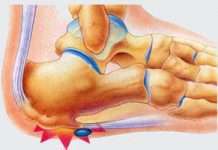A growing body of research reveals that when you eat may be just as important as what you eat. Chrononutrition, the study of meal timing, suggests that aligning your eating schedule with your body’s natural rhythms can significantly influence health and longevity. A new 20-year study involving nearly 3,000 adults confirms this, showing that delaying breakfast is linked to shorter lifespans and increased health challenges.
How Meal Timing Impacts Your Biology
Your body operates on a 24-hour internal clock, the circadian rhythm, which governs hormone fluctuations, metabolism, and energy levels. Light is the primary regulator, but food acts as a powerful secondary cue, especially for metabolic organs. Eating earlier in the day reinforces your body’s natural energy cycle, optimizing nutrient processing and blood sugar stability.
In contrast, late eating disrupts this rhythm. As evening approaches, digestive efficiency declines, insulin sensitivity drops, and metabolic processes shift toward repair. Over time, chronic circadian misalignment can contribute to hormonal imbalances, inflammation, and even changes in gene expression tied to aging.
The Study Findings: Delayed Breakfast, Shorter Lifespan
Researchers tracked meal timing habits over two decades and found that delaying breakfast correlated with increased fatigue, mood changes, and a higher risk of health problems. Participants who consistently ate breakfast later in the day had shorter lifespans, even after accounting for factors like diet, exercise, and sleep.
This suggests that meal timing is not merely a lifestyle preference but a fundamental regulator of biological aging.
Simple Strategies to Sync Your Eating Schedule
The good news is that aligning your eating habits with your circadian rhythm doesn’t require drastic changes. Here are a few practical steps:
- Eat Within 1–2 Hours of Waking: Stabilize blood sugar and signal alertness early in the day.
- Maintain Consistency: Eat meals around the same time each day to avoid disrupting your body clock.
- Prioritize Morning Protein: Support neurotransmitters and maintain focus with protein-rich foods.
- Close the Kitchen 2–3 Hours Before Bed: Support better sleep, metabolism, and overnight repair.
The Takeaway
Meal timing is a simple yet powerful lever for health and longevity. Shifting your first meal earlier or maintaining a consistent schedule may help your metabolism, mood, and energy stay in sync with your biology.
This study reinforces the idea that when you eat is as important as what you eat. By aligning your eating habits with your body’s natural rhythms, you can optimize your health and potentially extend your lifespan


























































